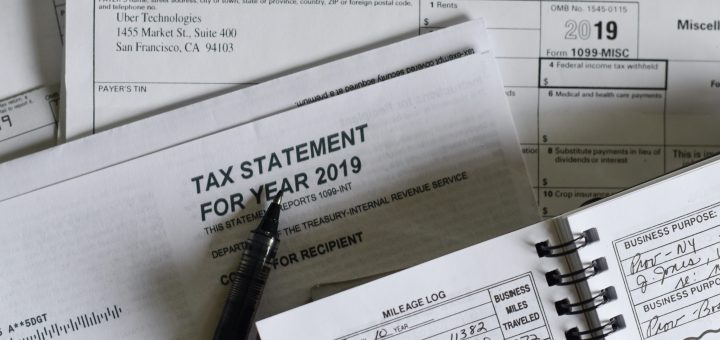Jurisdiction Confusion: The SCC to Clarify the Federal and Tax Courts’ Roles in Taxation Law in Dow Chemical Canada

The Supreme Court of Canada (“SCC”) will soon comment on the jurisdictional contours of the Tax Court of Canada (“TCC”) and Federal Court of Canada (“FCC”). The SCC has granted leave to appeal in Canada v Dow Chemical Canada ULC, 2022 FCA 70 [Dow Chemical Canada], where the Federal Court of Appeal (“FCA”) ruled that s. 247(10) of the Income Tax Act, RSC 1985, c 1 (5th Supp) [ITA] is not within the exclusive jurisdiction of the TCC (Dow Chemical Canada, para 5).
This decision will likely clarify the respective roles of the TCC and FCC with respect to the ITA, as well as the role of remedies in determining whether or not a court has exclusive jurisdiction over a matter.
Legislative and Factual Background
Under s. 247(2) of the ITA, transfer pricing adjustments—adjustments to the prices paid in a transaction for property or services—may be made in certain cases involving non-arm’s length dealings. S. 247(10) provides that such adjustments are not to be made unless “in the opinion of the Minister, the circumstances are such that it would be appropriate that the adjustment be made” (ITA, s. 247(10)).
Dow Chemical Canada ULC (“Dow”) was subject to certain transfer pricing adjustments which resulted in a reassessment of its 2006 taxation year (Dow Chemical Canada, paras 7–12). Dow appealed the reassessment to the TCC (Dow Chemical Canada, paras 2, 12). In that appeal, there was also a question submitted to the TCC under r. 58 of the Tax Court of Canada Rules (General Procedure), SOR/90-688a (Dow Chemical Canada, para 1). The question was whether or not discretionary decisions of the Minister under ss. 247(2) and (10) fall outside the exclusive jurisdiction of the TCC (Dow Chemical Canada, para 1). The answer to this question is critical because it determines which court parties must turn to when challenging transfer pricing adjustments (Dow Chemical Canada ULC v The Queen, 2020 TCC 139 [Dow Chemical Canada TCC], para 5). If the jurisdiction of ss. 247(2) and (10) lies not in an appeal to the TCC, then it would be judicially reviewed by the FCC, which has jurisdiction to review the Minister’s decisions that are not otherwise appealable (Dow Chemical Canada TCC, para 5).
The TCC answered in the negative, holding that the Minister’s discretion under s. 247(10) is subject to exclusive treatment by the TCC, so long as the relevant taxation reassessment has been concurrently appealed (Dow Chemical Canada TCC, paras 213, 215). The primary reason for this was that even when challenging transfer pricing adjustments, the “essential character” of the relief sought is a vacation, variation, or reconsideration and reassessment of the assessment by the Minister, which is available on appeal to the TCC pursuant to s. 171 of the ITA (Dow Chemical Canada TCC, para 167). Any appeal to the TCC under the ITA is within the TCC’s exclusive jurisdiction, pursuant to s. 12(1) of the Tax Court of Canada Act, RSC 1985, c T-2.
The TCC’s ruling was appealed to the FCA.
The FCA’s Decision
The FCA overturned the TCC’s decision, instead ruling that the Minister’s discretion under ss. 247(10) is not within the exclusive jurisdiction of the TCC (Dow Chemical Canada, para 5).
The FCA relied primarily on the distinct remedies available to the TCC versus the FCC (Dow Chemical Canada, paras 30–32, 64). The FCA noted that where an appeal is made to the TCC regarding a taxation assessment pursuant to s. 169(1) of the ITA, the only remedies pursuant to s. 171 are to vacate, vary, or send the matter back to the Minister for reconsideration and reassessment (Dow Chemical Canada, para 30). Conversely, pursuant to s. 18(1) of the Federal Courts Act, RSC 1985, c F-7, the FCC has exclusive jurisdiction to issue injunctions, writs of certiorari, writs of prohibition, writs of mandamus, writs of quo warranto, or other declaratory relief against a federal board, commission, or tribunal. Pursuant to s. 18(3) of the Federal Courts Act, such remedies are only available on judicial review pursuant to s. 18.1. As noted by the FCA, the FCC has the power to, inter alia, quash or set aside a decision of a federal board, commission, or tribunal upon judicial review (Dow Chemical Canada, para 32; Federal Courts Act, s. 18.1(3)).
The FCA departed from the TCC by distinguishing transfer pricing adjustment decisions from the ultimate taxation assessments which result therefrom (Dow Chemical Canada, para 77). While the former may affect the latter, it is a separate decision within the exclusive decision-making realm of the Minister (Dow Chemical Canada, para 77). The court found that the remedies available to the TCC are limited to assessments as a whole, not transfer pricing adjustments (Dow Chemical Canada, para 70). The FCA wrote, “[v]acating the entire reassessment (which may include other adjustments that are valid) to only address the one issue concerning this downward adjustment is not a viable option” (Dow Chemical Canada, para 70). Further, the FCA noted jurisprudence which has confirmed that appeals to the TCC regarding taxation reassessments are, at their core, focused on the assessments themselves and not the process by which they were reached (Dow Chemical Canada, paras 72–74). In other words, the remedies available to the TCC are directed at assessments, and not equipped to address specific decisions of the Minister made in the process of coming to those assessments (Dow Chemical Canada, paras 72, 77). The FCC, on the other hand, has jurisdiction to quash such decisions on judicial review pursuant to s. 18.1(3) of the Federal Courts Act (Dow Chemical Canada, para 77).
Analysis
Transfer Pricing Adjustments Versus Assessments: An Artificial Distinction?
The FCA’s analysis regarding transfer pricing adjustments as distinct from assessments is plainly persuasive. However, from a practical standpoint, the TCC was correct that when challenging transfer pricing adjustments, taxpayers are primarily concerned with the resulting assessments that stem from those adjustments (Dow Chemical Canada TCC, paras 19, 212). They do not challenge transfer pricing adjustments in and of themselves, but rather, they take issue with final assessments on the basis that they are not reached properly. Regardless, the FCA is ultimately correct that pursuant to the relevant legislation, the TCC is simply not equipped to provide a unique and tailored remedy for transfer pricing adjustments. Unlike the FCC, which has an array of options to deal with particular administrative decisions of the Minister, the TCC can only provide crude, broad remedies pertaining to assessments.
This seems to be reflective of a genuine legislative attempt to carve out unique powers for both the TCC and FCC without allowing improper jurisdictional overlap. On a practical level, since transfer pricing adjustments are so tightly linked with their resulting assessments, and since the TCC has exclusive jurisdiction to hear appeals regarding assessments, it seems logical that the TCC should also have exclusive jurisdiction to address transfer pricing adjustments. On the other hand, there must be a balance struck between taxation law and administrative law. After all, the FCC is specially attuned to judicially review administrative decisions. Transfer pricing adjustments are such decisions, and therefore should be within the purview of the FCC.
Conclusion
The FCA’s decision in Dow Chemical Canada leaves a very real possibility that taxpayers may be inconvenienced by having to bring parallel proceedings for their taxation-related disputes—some before the TCC and some before the FCC. However, this inconvenience is a necessary byproduct of ensuring that the TCC and FCC’s jurisdiction relating to the ITA is carefully and clearly delineated so as to prevent overlap. Had Parliament seen fit to grant all jurisdiction under the ITA to the TCC, it could have done so. Instead, it is clear that there is value to the FCC having some jurisdiction to deal with matters under the ITA, and in particular, those which are administrative and therefore within its realm of expertise. The FCA’s decision in Dow Chemical Canada captures this legislative intent well.
It is difficult to speculate as to what the SCC’s decision in this case will be. Regardless of the outcome, it is likely to be an interesting decision that squarely addresses and defines the unique and distinct roles of the TCC and FCC as it pertains to the ITA.







Join the conversation